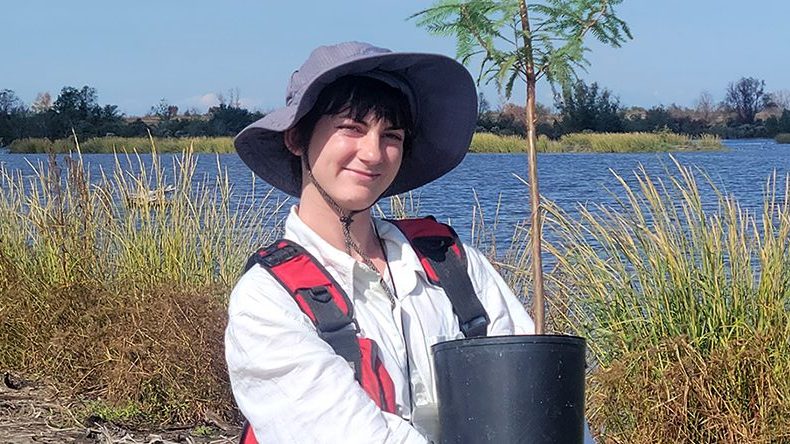I fear the effects of climate change. I love New Orleans. I plant trees in the swamp.
I see many friends of mine quickly become discouraged after initially becoming inspired to action to address a civic or environmental issue. After the initial spark of rage and determination come fantasies of heroism, imagining a point of finality in which the job is done. Following these fantasies come plans and schemes with that end goal in mind, and after that comes the overwhelming wave of recognition: these problems are larger than just one person, and most of them are continuous.
Older folks walk up to me and confidently point out that “saving the wetlands” is pointless and a waste of time. They are discouraged to the point of apathy and defeatism.
I don’t believe that I am wasting my time when I am planting a tree. I don’t believe it’s pointless to distribute food from our Free Pantry just because these families will be hungry again tomorrow. I do believe it is important to place ourselves within the continuum of human experience, and to walk away from the concept of a finish line.
There is no end to the work of stewardship. There is no end of need or care for one another. Having goals is important, and many are achievable. But in order to combat doom and gloom scenarios we need to reframe what it is we are doing here.
When the organization I currently run was founded I was 7 years old. I am turning 27 while this organization is turning 20. In the 20 years between its founding and my leadership here, thousands of individuals passed through its doors and sustained its mission. Somehow, they passed the baton to me, and I carry it forward now. I think of my job, which can be quite overwhelming, in a few central tasks: 1) don’t burn the building down 2) don’t go to jail and 3) when it’s time, pass the baton forward.
The race doesn’t end when I stop running, or when I rest. The race never ends. If I pass the baton forward, someone will take it and keep going. I just have to do my part.
It is a privileged position to impose pessimism on matters of survival. It is understandable to have these feelings of fear, anger, disappointment, anxiety, defeatism. I didn’t say you had to be happy and smiling when planting a tree in a place threatened by sea level rise, salt water intrusion, pollution, development, in a place that was once so densely forested you couldn’t see the sky or 10 feet in front of you. I am often angry and disappointed when planting trees next to broken marsh and open water in full view of refinery, refinery, refinery dotting the horizon mimicking city skylines. Every tree I plant is a fuck you to what threatens my right to occupy my family’s home in the company of all our ghosts.
And when I’m not feeling vindictive I enjoy the space I occupy, I enjoy sharing stories and information with the hundreds of volunteers who join us in the swampy mud. It’s a joy and a pleasure to care for the environment that holds you.
